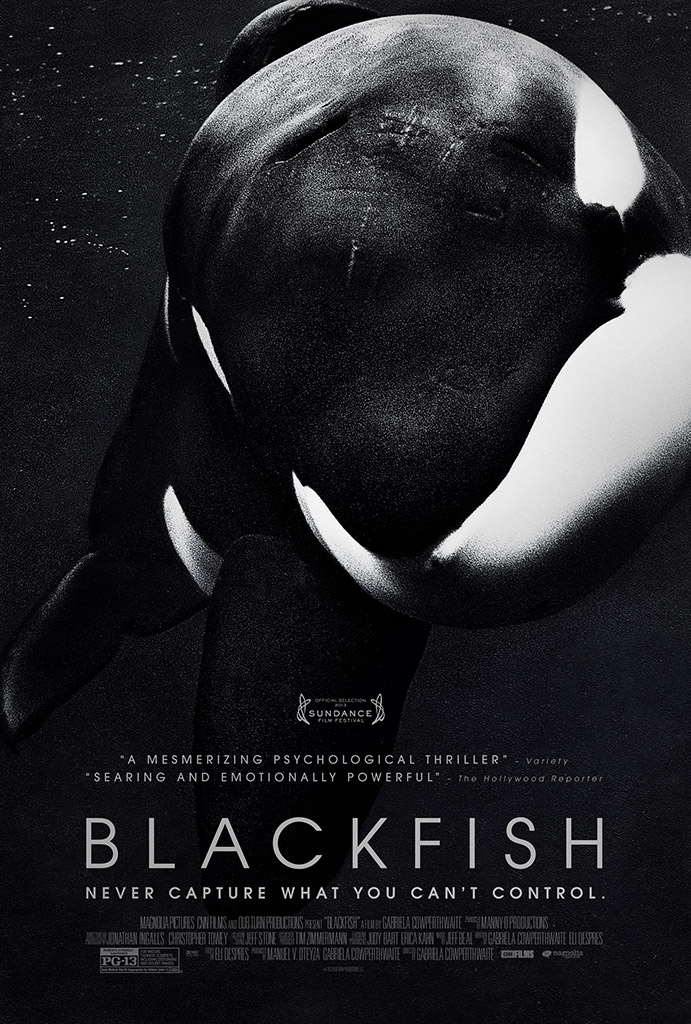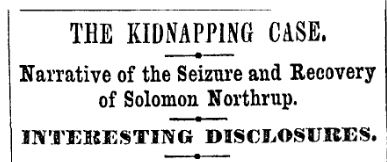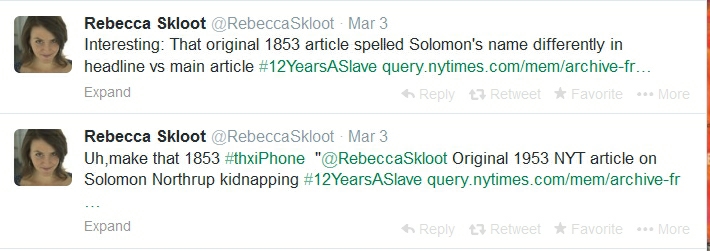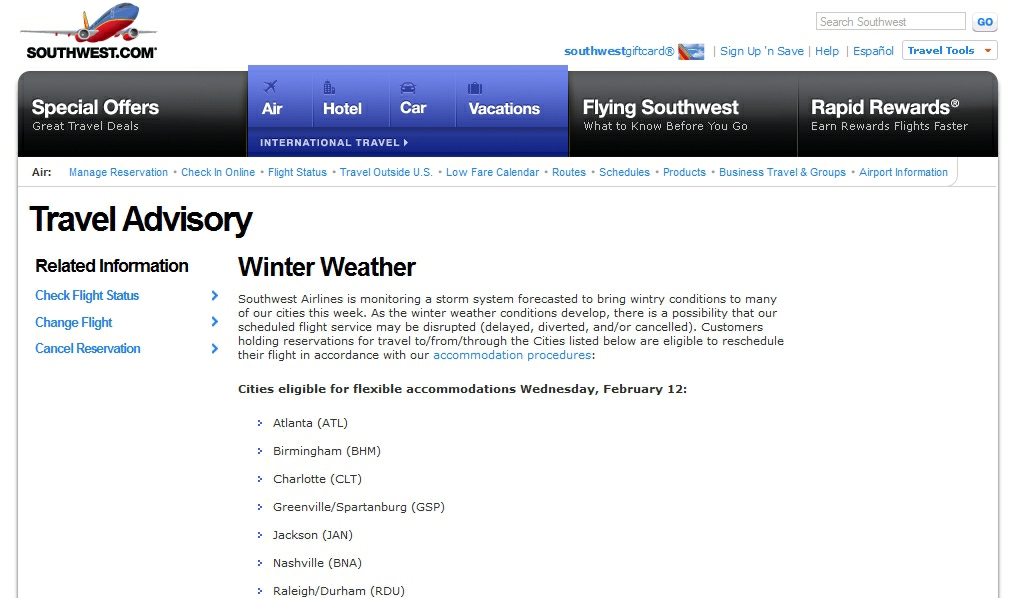Cornell President Announces Plans to Leave
Cornell President David Skorton will leave the university in July 2015 to become the secretary of the Smithsonian. In a Smithsonian announcement, Skorton gave this statement:
"Becoming a part of the Smithsonian is a once-in-a-lifetime opportunity to lead an institution that is at the heart of the country's cultural, artistic, historical and scientific life. I am honored by the Board of Regents' decision. I look forward with great enthusiasm to partnering with the excellent staff and volunteers, and engaging with the Regents, Congress and the Smithsonian's many friends, supporters and affiliates to further extend our reach. I am eager to work with the leaders of Washington's art, science and cultural centers to emphasize the critical importance of these disciplines."
Skorton's email to the Cornell community echoed his enthusiasm for the Smithsonian and focused on continuing his work with Cornell through the sesquicentennial.
Dear Colleagues and Friends,
This morning, Robin and I are in Washington, D.C. for the announcement that I will become the next Secretary of the Smithsonian Institution on July 1, 2015. The Smithsonian is one of our true national treasures, and I am honored to have the opportunity to help shape its cultural, artistic, historic, scientific and public engagement endeavors.
Although the transition is in the news today, our work on behalf of Cornell is not done. I will continue all the duties and activities of my Cornell office through this and the next entire academic year, advancing the full array of university initiatives, celebrating our sesquicentennial and ensuring a successful transition to the next president.
Robin will continue her work in the College of Veterinary Medicine on the Ithaca campus and at Weill Cornell Medical College in New York City through June 30, 2015, along with continuing her role as a Cornell ambassador for the sesquicentennial events yet to come.
After we all celebrate Cornell's sesquicentennial, we will carry with us the enduring spirit of Cornell and its remarkably talented community of scholars, students, staff and alumni with whom we have had the privilege to collaborate during these past eight years.
From our very first Cornell Reunion in June 2006, a few weeks before we were officially on board, Robin and I were knit into the fabric of a remarkable community. We have learned so much as part of the Cornell family, from our periodic stays in Mary Donlon Hall during Orientation, to our day-to-day activities on the campuses, to our interactions with our wonderful alumni. We continue to cherish your support, guidance and friendship.
We will be back in Ithaca this evening. We look forward to seeing and talking with many of you in person as our transition unfolds. We also look forward to seeing you at the many events being planned to celebrate Cornell's sesquicentennial, beginning this fall.
Warm regards,
David
--
David J. Skorton
President
Cornell University
In a video, Skorton said that he'll miss interactions with students.
Discussion Starters:
- Analyze President Skorton's message to the Cornell community. How do the organization, audience focus, and content work well, and what could be improved?
- What differences, if any, do you notice in message and tone between Skorton's Smithsonian announcement and the email announcement?
No More @GSElevator Book Deal
The publishing deal for @GSElevator tweets is off the table. With 652,000 followers, the author had garnered an impressive following by tweeting what could be said in the Goldman Sachs elevator. He never claimed that the tweets were actually said-or that he worked for Goldman. When the book deal was first announced, it was unclear whether either mattered to Touchstone, a division of Simon and Schuster. But now that John LeFevre's identify has been revealed, the offer has been withdrawn.
According to a Business Insider article, the decision surprised LeFevre:
"It's just a comical mystery to me. As of Friday afternoon, after all of the noise - during which Simon & Schuster prohibited me from responding and defending myself - they have continued to support me and stand by our project. Well, until today apparently."
Simon and Schuster gave this statement:
"In light of information that has recently come to our attention since acquiring John Lefevre's STRAIGHT TO HELL, Touchstone has decided to cancel its publication of this work."
LeFevre also wrote a piece in Business Insider explaining the history of @GSElevator and defending himself. Here are a few excerpts, and you can read the full version here:
"For the avoidance of any doubt, any person who actually thought my Twitter feed was literally about verbatim conversations overhead in the elevators of Goldman Sachs is an idiot.
"Newsflash: GSElevator has never been about elevators. And, it's never been specifically about Goldman Sachs; it's about illuminating Wall Street culture in a fun and entertaining way. Without highlighting the obvious evolution of the tweets into more generally-appealing observations, let's start with the simple fact that each of my tweets says 'Sent from Twitter for Mac,' hardly the work of someone pretending to be hiding in the walls of 200 West.
"Being called a 'fake' or a 'hoax' by the same people who embraced me as 'satire' is simply laughable – and it really speaks to the silly and opportunistic attempts at cheap headlines.
"I have been completely transparent in saying that my tweets are edited, curated, and crafted, in a way that I think will best resonate and still embody the soul and mentality of Wall Street. My focus has been to entertain and enlighten, without being completely devoid of substance and insight."
Meetup Communicates About Outage
Meetup's website was down for a while, frustrating users. CEO Scott Heiferman communicated well during the outage with two emails. In both, he emphasizes that user information was not compromised-a likely question that users might have.
|
|
||||
|
|
Meetup Organizers around the world, You may have had trouble accessing Meetup's site or apps over the past few days, and you may have heard that Meetup has suffered a massive attack on our servers - a DDoS attack, which is a barrage of traffic intended to make services unavailable. Organizer and member data is secure, including credit card information. No data has been accessed or stolen. (See our blog for all the details on the attack and our response.) This has been a tough few days for Meetup, and I know it's been a real struggle for many of you to manage your Meetups while our site and apps were down. You should know that we're listening to your questions and concerns and that you can count on meetup to be stable and reliable soon, to bring back all features, and to minimize the effects of the service outages. Thanks for everything you do to create community, Scott Heiferman, |
| Follow us on Twitter, Facebook, or our blog for continuous updates. |
Meetup Inc., POB 4668 #37895
|
Hello Meetup Members,
You may have had trouble accessing Meetup in the past week, and you may have heard that we were hit by a massive attack on our servers - a DDoS attack, which is a barrage of traffic intended to make services unavailable.
I'm happy to report that Meetup is up and running! And no personal data was accessed or stolen. (For more info, here are details on the attack and answers to your FAQs.)
It was amazing to see how many people were rooting for Meetup. We're excited to see you discover what's going on, find your people, and create community like never before.
Here's what you may have missed:
You can also download our iOS app or Android app for a super easy way to see local Meetups!
Scott Heiferman,
Co-Founder and CEO, Meetup
Discussion Starters:
- Analyze Heiferman's two emails: the organization, content, writing style, and mechanics. What works well, and what would you suggest he change?
- Why might users worry about their personal information? Did Heiferman overstate the concern or address it well?
- In both emails, Heiferman includes the difficulty this has caused Meetup as an organization. What do you think of his including the organization's perspective in this way? Does it enhance his
RadioShack Closes 1,100 Stores
RadioShack is closing 1,100 stores, representing almost 20% of its total number.
Blaming decreased traffic and weak cell phone sales, company executives presented the company's plan in a fourth quarter call for investors. (Access the call: (888) 286-8010, replay pass code 13147362.) On the call, CEO Joe Magnacca discusses reasons for declining sales and strategic plans. He also praises the company's successful Super Bowl's ad.
In a news release, the company maintains a positive outlook, quoting Magnacca:
"Even in this environment, we're continuing to make progress on the five pillars of our turnaround plan: repositioning the brand, revamping the product assortment, reinvigorating the stores, operational efficiency and financial flexibility."
A video on the website, "Do It Together Campaign," promotes part of the company's new direction.
In 2006, RadioShack was criticized for communicating layoffs in an email that read, "The work force reduction notification is currently in progress. Unfortunately your position is one that has been eliminated." We have no word yet on these layoffs are communicated internally.
Discussion Starters:
- What are the key messages of RadioShack's four communications presented here: the ad, the DIT video, the press release, and the investor call?
- What works well about the ad and DIT video, and what could be improved in each?
SeaWorld PR in Full Swing (Spin)
 At least one reporter thinks the SeaWorld PR machine should take a rest. SeaWorld took a big reputation hit when more than 21 million people watched Blackfish, a documentary claiming that orca whales suffer in captivity, in some cases causing injury and death to trainers who work at the park.
At least one reporter thinks the SeaWorld PR machine should take a rest. SeaWorld took a big reputation hit when more than 21 million people watched Blackfish, a documentary claiming that orca whales suffer in captivity, in some cases causing injury and death to trainers who work at the park.
Now, five months after the movie aired, SeaWorld submitted a complaint to the Labor Department, questioning the ethics of an investigator cited in the film. Calling the move "bizarre PR," Yahoo writer Jeff Macke said, "The complaint put SeaWorld and the documentary on the front page of the N.Y. Times business section; exactly where the company doesn't want it to be."
SeaWorld's strategy seems to be a continuation of its approach from last July, which a New York Times writer described:
"SeaWorld, advised by the communications firm 42West, which is better known for promoting films than punching back at them, is taking the opposite approach. By midweek, the company was providing top executives and animal caretakers for interviews about the movie and its purported flaws.
"It was also deliberating possible further moves, which might conceivably include informational advertising, a Web-based countercampaign or perhaps a request for some sort of access to CNN, which picked up television rights to 'Blackfish' through its CNN Films unit and plans to broadcast the movie on Oct. 24."
On its website, SeaWorld writes the "Truth About Blackfish," which the company calls "propaganda, not a documentary":
"We object to Blackfish because its two central premises are wrong: (1) that life at SeaWorld is harmful for killer whales and for trainers working with these animals, and (2) that SeaWorld has attempted to cover up the facts surrounding the tragic death of trainer Dawn Brancheau in 2010, as well the history of Tilikum, the killer whale involved in that accident. Nothing could be further from the truth.
"To make these ultimately false and misleading points, the film conveys falsehoods, manipulates viewers emotionally, and relies on questionable filmmaking techniques to create 'facts' that support its point of view." (continue reading)
The post then describes several areas the company considers false or misleading.
Discussion Starters:
- What's your view? Do you agree with the Yahoo writer's assessment of SeaWorld's PR approach?
- Assess SeaWorld's criticism of the movie. Which are the strongest points, and which are the weakest? How, if at all, does this article affect your perception of Blackfish?
Error in "12 Years a Slave" Story
 The New York Times has just corrected an error in spelling the name of the man featured in the Academy Award winning movie 12 Years a Slave. The 1853 article about the free African American man who was sold into slavery spelled his name Solomon Northrop and, in the headline, Northrup, rather than the correct spelling, Northup.
The New York Times has just corrected an error in spelling the name of the man featured in the Academy Award winning movie 12 Years a Slave. The 1853 article about the free African American man who was sold into slavery spelled his name Solomon Northrop and, in the headline, Northrup, rather than the correct spelling, Northup.
The New York Times correction acknowledges a tweet for pointing out the error:
An article on Jan. 20, 1853, recounting the story of Solomon Northup, whose memoir '12 Years a Slave' became a movie 160 years later that won the best picture Oscar at the 86th Academy Awards on Sunday night, misspelled his surname as Northrop. And the headline misspelled it as Northrup. The errors came to light on Monday after a Twitter user pointed out the article in The Times archives. (The errors notwithstanding, The Times described the article as 'a more complete and authentic record than has yet appeared.')
Rebecca Skloot's tweets revealed the error but also included a typo:
In a later tweet, Skloot admitted, "The irony, of course, is that I'm a terrible speller and proofreader."
Discussion Starters:
- How could an error like this happen? What technologies and processes may be in place today that might have caught the error before going to press?
- Does it surprise you that the error was revealed in a tweet and that The New York Times didn't catch the mistake until 161 years later?
Academic Gestures -- Very Funny
A "Glossary of Gestures for Critical Discussion" pokes fun at us academics, who merely try to spice up a lecture and keep students engaged. My favorite is the "Italian waiter: Use when making a cultural observation."

If you're inclined, you can order rulers or coasters with the gestures.
At least the gestures answer Will Farrell's question in the movie Talledega Nights: "What do I do with my hands?"
Discussion Starters:
- Watch you professors during the next class: how many can you identify?
- What other gestures do your professors use?
- Do you notice a difference in how business and other faculty use gestures?
Viral Ad Winner: "Would You Help a Freezing Child?"
A hidden camera filming people helping a freezing child in Oslo, Norway, topped the Viral Video Chart this week. The ad raises awareness of the suffering of Syrian children.
Discussion Starters:
- What makes these ads so compelling, particularly the one about people helping the freezing child?
- Which on this list is your favorite?
Head of Job Bank Apologizes for Nasty Emails
The winner of the IABC (International Association for Business Communication) "Communicator of the Year" award in 2013 may want to give back the prize. Kelly Blazek runs a Cleveland-based job bank and was tired of people such as this John Carroll University graduate asking for access to her connections (her Yahoo group). But Blazek's emails are too harsh.
When her emails became public on Reddit and other sites, Blazek deleted her Twitter account, LinkedIn recommendations, and blog posts. She also apologized for her approach.
I am very sorry to the people I have hurt.
Creating and updating the Cleveland Job Bank listings has been my hobby for more than ten years. It started as a labor of love for the marketing industry, but somehow it also became a labor, and I vented my frustrations on the very people I set out to help.
Hundreds of people contact me every month looking for help, and as the bottom fell out of the job market, their outreach and requests demanded more of my time. I became shortsighted and impatient, and that was wrong.
My Job Bank listings were supposed to be about hope, and I failed that. In my harsh reply notes, I lost my perspective about how to help, and I also lost sight of kindness, which is why I started the Job Bank listings in the first place.
The note I sent to Diana was rude, unwelcoming, unprofessional and wrong. I am reaching out to her to apologize. Diana and her generation are the future of this city. I wish her all the best in landing a job in this great town.
Discussion Starters:
- IABC is getting pressure to rescind the award. Should the organization do so? Why or why not?
- Try to see Blazek's perspective. Why would she send such emails to job seekers?
- What's your reaction to Blazek's apology? Is it sincere? Is it enough?
"Milk Life" Replaces "Got Milk?"
 After 21 years of success, the "Got Milk?" slogan is being replaced by "Milk Life." The original campaign started in 2013 and was best known for its celebrities sporting a milk mustache. Now, the Milk Processor Education Program is updating the slogan and producing new ads to address declining milk sales.
After 21 years of success, the "Got Milk?" slogan is being replaced by "Milk Life." The original campaign started in 2013 and was best known for its celebrities sporting a milk mustache. Now, the Milk Processor Education Program is updating the slogan and producing new ads to address declining milk sales.
On a new website, the campaign features images of active people and milk-based products. A theme seems to be "8 grams of protein," and a new video, below, shows people being powered by milk as a windmill and parachute. The campaign emphasizes drinking milk in the morning to get the "power of protein."
Earlier phrases, such as "it does the body good," have fallen out of favor. According to one of the advertising executives who worked on the campaign, "It reminds them of why they didn't want to drink it in the first place."
Discussion Starters:
- Who do you think is the target market for this campaign?
- Assess the current campaign: look at the website photos, text, and images. What works well, and what could be improved?
- The AdAge article discusses non-dairy products, such as soy and almond milk. How does this campaign stack up to the competitors' messaging?
PIMCO CEO Resigns in "Long" and "Thoughtful" Email to Employees
PIMCO CEO and Co-CIO Mohamed El-Erian resigned suddenly, and Business Insider obtained a copy of his internal communication to employees. Some speculate about "fatigue" and "tension" among the leadership team.
Business Insider provided this excerpt from the email:
I was so fortunate back in April 1999 to join such an exceptional firm. I vividly remember how I immediately felt at home in a culture that always puts the client first, that is determined to excel, and that values thought leadership as a foundation for continued success.
During my wonderful time at PIMCO, I worked with amazing colleagues who taught and inspired me. I grew professionally and personally. I made lasting friendships. And I had great fun.
But the significance of the "I" pales when compared to the "we" and "you."
Collectively as a firm, we have achieved amazing things for our clients around the world.
It is hard to believe when you see today's PIMCO but, back then, I joined in 1999 a firm that had some $150 billion in assets under management, serving essentially US clients. We offered primarily core fixed income U.S. products. And we were around 500 colleagues working in 4 offices.
Today we are around 2,500 in 13 offices around the world. Our truly global client base has entrusted us with some $2 trillion in assets to manage. And we provide them with a much more diversified set of investment products whose performance continues to excel – once again, over 90 percent of our assets under management are out-performing their benchmarks for the last 5-year period (as of December 31, 2013, before fees).
Yes, collectively, we have been on a meaningful and amazing journey – of serving well more clients, in more places, and with an expanding set of investment solutions to help them meet their objectives.
As you can imagine, the last six years have been particularly exciting and significant as we have helped our clients navigate a global financial crisis and its aftermath. Together, we have worked very hard to safeguard and grow their retirement funds, pensions, investments and savings. And because PIMCO delivered, they have rewarded the firm's hard and effective work by almost tripling our assets under management during this six year period. Or, from another perspective, it took PIMCO 39 years to reach the first $1 trillion mark and just over 3 years to reach the $2 trillion mark.
It has been a period of amazing growth in other meaningful ways too. We are a much stronger and more diversified firm.
Our increasing revenues achieved yet another new record in 2013, as did the level of PIMCO's profits. Our assets under management are more diversified with the share of non-traditional (non-core fixed income) assets, which stood at 56 percent of our business in December 2007 when I rejoined as CEO and co-CIO, now at 66 percent – and this is despite that fact that PIMCO's traditional business continued to grow strongly over this period.
We are also a much more global firm, and getting more so by the day. In the last six years alone, the share of our non-US business has risen to over 30 percent, and again notwithstanding solid growth in our U.S.-based business.
Together, we have done more than successfully expand and diversify PIMCO – we have also successfully grown and made significant strides in diversifying our people.
Our expanding Inclusion and Diversity programs have become an integral part of our talent management and, already, are an important contributor to our success. That, together with our closely-related collective emphasis on promoting and engendering cognitive diversity, puts PIMCO in an even better position to deliver more for our clients in the future.
Because of the way we have done all this – namely, by never losing sight of our mission to deliver to clients superior long-term investment performance, world class client servicing, innovative products, and the right mix of business resilience and agility – PIMCO's success has been recognized worldwide; and not just by the multiple awards (including last week's Morningstar award for Alfred Murata and Dan Ivascyn, joining Bill Gross and Mark Kiesel as past winners) but also, most importantly, by the very high level of client satisfaction.
You are extremely talented, dedicated, and hard working in serving clients. You provide a level of investment excellence, intellectual stimulation and operational efficiency that also allow others to grow and shine. You interact in a way that make the whole much bigger than the sum of the parts. You find a way to maintain your composure and effectiveness regardless of the volatility of markets. And, somehow, you do all this again and again!
What is really impressive about you is not limited to what you consistently deliver to our clients and how you do so; it is also about how you find the time and energy to also give back to our local communities...
PIMCO also published a press release announcing the new leadership team.
Discussion Starters:
- Compare the email except to the press release. What similarities and differences do you see?
- What's missing from the press release?
Business Insider refers to the internal communication as a "memo," but I call it an "email." Why?
Register.com's Obvious Sales Letter
Do people fall for the free "consultation" companies offer? Register.com sent an email to me with the subject, "Account Notice: Schedule Your Consultation."
With a thinly veiled sales strategy, the email promised a "Complimentary Business Consultation and Evaluation" in a graphical invitation:
The body of the message futher explained the "offer":
Dear Amy,
You've been selected for a free 30-Minute Business Consultation with one of our Web Experts. This consultation is your chance to get tips and recommendations on how to improve any aspect of your businesses' online presence from one of our top Web Consultants.
Your Consultant will work with you to ensure your business is optimized for success utilizing their extensive experience and knowledge in website development, search engine marketing, social media, mobile advertising and more.
Call 844-282-2290 for your complimentary consultation.
When you click on the invitation within the email, you get a page on registerpromotion.com that explains Register's services beyond hosting: customizing a website, improving search engine optimization, and increasing "Facebook presence."
Discussion Starters:
- What makes Register.com's message so obviously a sales tactic?
- What types of people would respond to Register's "offer"? What do you think they expect when they do respond?
- Am I over-reacting? So what if it's a sales tactic? Maybe it's obvious to people, and the services are useful.
Microsoft's Communications About Its New CEO
Microsoft hit the news with its appointment of a new CEO. Born in Hyderabad, India, in 1967, Satya Nadella will be the company's third CEO. He worked at Microsoft for 22 years, most recently as the head of the Cloud and Enterprise group.
On a splashy web page, Microsoft announces the news, provides videos and photos fit for a magazine, and includes links to:
- Traditional press release
- Steve Ballmar's email to employees
- An asset pack of material (zipped files)
- Nadella's email to employees
- Webcast for customers and partners
This web page is good example of a new media release.
Nardella looks very cool in this picture-kind-of like the Apple guy.
You can learn more from Nadella himself on the web page and from his interview with The New York Times.
Discussion Starters:
- In what ways is the web page like and unlike the company's traditional press release?
- After reading the web page announcement, press release and two emails, what message themes emerge? Do you also find inconsistencies or contradictions?
- Watch the webcast. How is the video tailored to the defined audiences: customers and partners? What is done well, and what could be improved?
Ad Campaign: "I Wish I Had Breast Cancer"
A new advertising campaign from the Pancreatic Cancer Action, a British organization, has caused an uproar.
The marketers knew what they were doing: planning for outrage, Founder Ali Stunt introduced the campaign in a website post, "No Cancer Advert That Saves a Single Life Can Be Accused of Going Too Far":
"I want to remind all those that read this blog post that today 160 women will find out they have breast cancer, eight women will find out they have cervical cancer and seven men will be diagnosed with testicular cancer. It is vital that everyone finds out about the signs and symptoms of these cancers too. Please find the relevant charity details below.
"Today sees the launch of the UK's very first awareness advertising campaign for pancreatic cancer, which is being shown on the London Underground stations and tube cars as well as in London and Manchester newspapers such as the Metro and Evening Standard." (Read more.)
This post includes survival rates for cancers, with pancreatic at a sad 3%:
Criticism of the campaign has been harsh, including this retort on the site IHateBreastCancer.com:
"Oh boy. Because obviously the best way to call attention to one disease is at the expense of another.
"There's just one problem. Breast cancer is a like a fat man wearing a Hawaiian shirt: It covers a lot of ground. If you're going to wish for breast cancer, make sure you put in a special request for the non-metastatic kind. Because in 2014, there is no cure for metastatic breast cancer. The median survival rate is surely not as good as the Pancreatic Action Network seems to think it is. In general, breast cancer survival figures don't necessarily represent significant gains, as they are distorted by the over diagnosis of Stage I breast cancers, which have increased five-fold since the advent of mammography in the 1980s.
"Also, our research situation is much like yours: it sucks. Metastatic breast cancer is responsible for 90 percent of the morbidity and mortality, but gets less than 5 percent of the research budget."
Pancreatic Cancer Action stands by its campaign. On its website, it posted a video with interviews about the approach."
Discussion Starters:
- What's your view of the ad campaign: appropriate for the cause, insulting, or something else?
- Watch the Pancreatic Cancer Action organization's video about its approach. Do you find this response convincing ?
Ellen Page Comes Out
In a speech hosted by the Human Rights Campaign, Actress Ellen Page came out as a lesbian.
Her voice is shaking, and she's doing this bouncing thing with her arm. She's clearly nervous. So what? To me, this is a good example of someone who's understandably uncomfortable. Does it detract from her message or endear her to the audience?
Discussion Starters:
- What's your view of Page's nervousness? In what ways did it help and hurt her speech?
- Why was Page so nervous? Is it a big deal to be gay today?
Facebook's New Gender Options
Facebook is joining the twenty-first century, offering multiple options when users select "Gender" in their profile. Recognizing that not everyone self-defines as strictly "male" or "female," Facebook now provides more than 50 labels in its drop down menu:
On its diversity page, Facebook explains the change:
Users also can select the pronoun by which they would be referred on the site: he, she, or they. Students of business communication know that "they" isn't standard as a singular pronoun, although "one" is dated, "she/he" and "she or he" are clunky, and other variations haven't stuck. But considering the large number of gender labels, I wonder why more pronoun options aren't available.
Both the Human Rights Commission and GLAAD, which worked with Facebook on the change, applaud the move.
Discussion Starters:
- What's your view of Facebook's new options?
- What could opponents of the move say? What would be their rationale for limiting gender options?
- Why don't we have a common, neutral singular pronoun. If you were to invent one, what would it be?
"Whitest" Valentine's Day Ads Ever
Vice.com criticized FTD for producing stereotypical, white-only ads for Valentine's Day:
"Besides jewelers, the other big early February advertisers are of course flower-delivery companies. The biggest-Florists' Transworld Delivery-just released four new commercials, all featuring generic, white, hetero, annoying-as-humanly-possible actor-couples."
In four videos, FTD's ad agency Epsilon Chicago portrays couples arguing.
AdWeek also criticized the ads:
"These ads don't bite-they're amusing and well acted-but they do feel dated. The rhythm and style recall late-'90s/early-'00s sitcoms, with bird-brained guys and whiny women over-obsessing about their relationship woes. And why do we get youngish white hetero couples each time?"
The Vice.com article was particularly critical of the ad agency:
"Be thankful, Hispanics, African Americans, and Gays, who you are not in FTD's target demo. Because those scripts written by the white hack copywriters from the very white Chicago ad agency Epsilon would have been wincingly awkward, and probably racist."
Discussion Starters:
- With same-sex marriage winning popularity across the country and the population becoming increasing non-white, why would FTD focus only on white straight couples?
- Do you agree with Vice.com's concern that attempts for diversity would fail? Is it better to just play it safe? What are the other options?
Sands Casino Struggles to Recapture Website
Sands Casino's email and websites were hacked on Monday, and they're still down four days later. Sites in the U.S. and Asia, including Venetian Las Vegas and Palazzo, were affected by the invasion, which the FBI and Secret Service are investigating.
In place of the company websites, hackers posted employees' names, email addresses, and social security numbers; however, officials say that no customer information was compromised. The hacking may be in response to Sands CEO Sheldon Adelson's support of Israel. One posted image shows Adelson pictured with Israel's Prime Minister Benjamin Netanyahu-and flames instead of hotel pictures around the world.
In a statement, a Sands spokesperson said, "While we have been able to confirm that certain core operating systems were not impacted by the hacking, the company remains focused on working through a step-by-step process to ascertain what, if any, additional systems may have been impacted."
In the meantime, the company has this image posted on its home page:
Discussion Starters:
- Assess Sands' communications: how well is the company keeping people informed in its statement , on its website, and through other communications you find online?
- What could account for the long time the website has been under someone else's control? How does this happen to an organization?
Face Off or Faceoff, and Other Writing Tips for the Olympics
 The AP Standards Center has provided an overview of the Winter Games and tips for writing about the Olympics at Sochi. The purpose of the guide follows, in an introduction:
The AP Standards Center has provided an overview of the Winter Games and tips for writing about the Olympics at Sochi. The purpose of the guide follows, in an introduction:
"To help with spellings and usage in coverage of the Sochi Winter Olympics, The Associated Press compiled an editorial style guide of essential terms, spellings and definitions. Some terms are from the AP Stylebook: http://www.apstylebook.com/. Others are used in AP sports stories or contributed by Stephen Wilson, AP's Olympics beat writer.
In a section on "Spellings and usage," the guide offers these suggestions:
Capitalize games when attached to the host city or year: the Sochi Games and the 2014 Games.
When standing alone, spell games lowercase: The games open Feb. 7.
Olympics or Olympic Games are always capitalized: Winter Olympics and Summer Olympics. Each is staged every four years, but two years apart. The next Summer Games is 2016 in Rio de Janeiro.
Olympic (adj. without s) is always capitalized: Olympic gold medal, Olympic host city, Olympic flame, etc.
Discussion Starters:
- Read all of the style tips for the Winter Olympics. Which, if any, surprise you?
- Faceoff vs. face off follows the same rule for other nouns and verbs. What other examples fit this rule?
Southwest's Travel Advisory
Southwest Airlines is communicating clearly to customers affected by upcoming storms. In a tweet, the company linked to a simple page with further instructions.
Southwest isn't wallowing in the bad news (after all, it's not the company's fault that we're getting an insane amount of snow). Rather, it's focusing on what customers can do to reschedule. On the Travel Advisory page, customers can easily see which cities are affected on which dates and how they can rebook flights.
On the website home page, however, Southwest has only a small link with red text:
Compare this approach to JetBlue's. On JetBlue's website, the "Winter Storm Update" is one of three, large screens on the home page:
Discussion Starters:
- What could account for the airlines' different approaches?
- What works well about Southwest's Travel Advisory page? If you had travel plans during this time, what else, if anything, would you like to know?



























